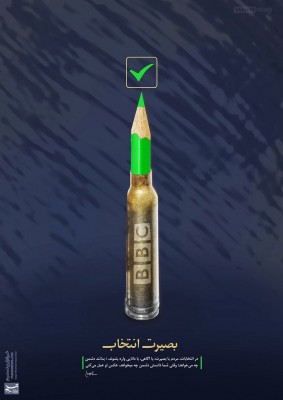
The leader of the reformist coalition, Aref, caught tying his shoes. Photo from ISNA.
On February 26, Iranians will head to polling stations to vote for their representative members of parliament as well as elect the members of Assembly of Experts, the religious body responsible for choosing the Supreme Leader and supervising his authority.
This election is of particular importance for a number of reasons, firstly in the importance of the office of the Supreme Leader, who acts as the final authority on all the nation's policies, often superseding the authority of the elected president. Secondly, the importance of this election comes after almost a decade of a parliament dominated by conservative ‘principlists‘ (with some segments within the conservative current referred to as hardline) politicians.
These forces have often been big challenges to the moderate and often progressive policies of the current administration of President Hassan Rouhani, forming opposition to efforts including the recent nuclear deal. This Friday's election will prove to be somewhat of a struggle for moderate and pro-reform figures to gain a foothold.
Fearing the popularity of the reformist camp, especially within coverage from Persian media outside of Iran, hardline elements within various Iranian institutions have slammed foreign media for supposedly trying to divide the country.
Ayatollah Mohsen Qomi, a member of Iran’s Assembly of Experts and the deputy chief of the Supreme Leader’s Office for International Affairs, accused foreign media outlets of supporting the pro-reform moderate coalition, “Foreign media supporting one candidate list to compete with another is done in order to create divisions within the country.”
Criticism has been heaped in particular on BBC Persian, with some officials in Iran accusing the British Broadcasting Corporation of encouraging Iranians to vote for pro-reform candidates. As BBC journalist Hadi Nili tweeted earlier in the week:
4d left to #Iran Parlmnt election day, authorities intensify jamming of BBCPersian TV on satellite.
cc @globalvoices pic.twitter.com/FOglH3GIyH— Hadi Nili (@HadiNili) February 22, 2016
Fars News, the semi-official news agency of the government of Iran, has published several cartoons targeting the BBC. One portrays the BBC as a conniving fox holding out a ballot box, with birds representing Iranian voters “dumping”, let's say, their opinion on the outlet.

Cartoon in Iranian Fars News reflecting BBC's role in the elections. The news agency called it “The people's response to the BBC's candidate list.”
Another, entitled, “Old British scare tactics,” portrays an unsuccessful scarecrow created by the BBC, intended to keep Iranians from the ballot box.

Fars News cartoon, “Old British scare tactics.”
Pushing on this theme of foreign influence, in another cartoon, Fars News implies that the Americans and British are using money to influence Iran’s February 26 elections, in order to get their “own” preferred candidates and candidate list up.

Cartoon from Fars News.
Tasnim News, a hardline news agency affiliated with the Revolutionary Guards, a powerful branch of the armed forces, published a cartoon graphic entitled “Election wisdom” that featured a bullet inscribed with the word BBC. At the tip is a greet pencil, suggesting that the BBC prefers candidates sympathetic to the 2009 Green Movement, in which tens of thousands of Iranians protested what they called a fraudulent election that saw hardliner President Mahmoud Ahmadinejad win reelection by a landslide.

Tasnim News graphic “Election Wisdom” on BBC Persian's influence.
The government has spoken ill of BBC Persian since its launch in December 2009, accusing it of manipulating the Iranian people against the Islamic Republic. Conscious efforts to jam the channel's satellite connections in Iran as well to block the organisation's website have been in effect since its inception.
Commenting on this latest round of hate toward the BBC, the outspoken and independent member of parliament from Tehran, Ali Motahari (who is now included in the reformist affiliated “list of hope” on the ballot) reacted to the BBC criticisms with the following (as reported by reformist newspaper Shargh Daily):
علی مطهری در دانشگاه تهران: ادعای حمایت رسانههای خارجی از اصلاحطلبان شارلاتانبازی است. – ایلنا pic.twitter.com/AzEYAHKVJo
— روزنامه شرق (@SharghDaily) February 22, 2016
Those that claim that foreign media is supporting the reformists are charlatans.
Diaspora media organisations such as BBC Persian, Radio Farda, and Voice of America Persian, alongside American and European social media platforms, continue be crucial factors in the campaigns and sources of information leading up to the 26 February elections.






